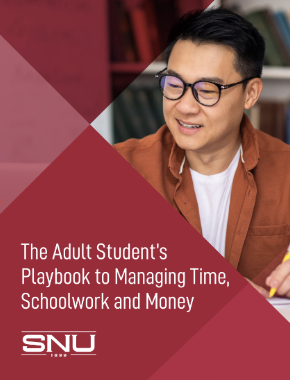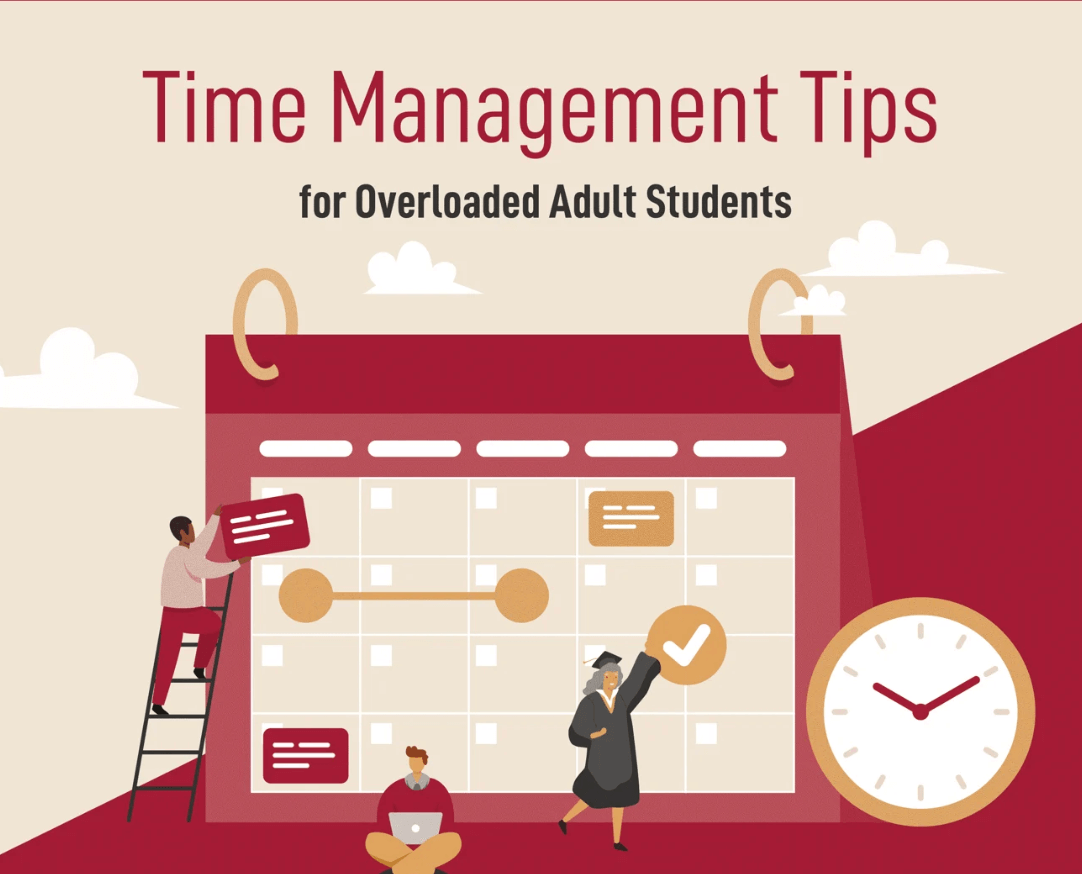-
Programs
Not Sure Where to Start?
- Associate Programs & Certificates
- General Studies
- Associate of Arts in Business
- Physical Therapist Assistant
- Professional Services & Certificates
- Special Education Bootcamp
- View All
- Undergraduate Programs
- Business Administration
- Criminal Justice
- Cybersecurity
- Education
- Family Studies and Gerontology
- Healthcare Administration
- Organizational Leadership
- Accelerated General Education
- View All
- Graduate & Doctorate Programs
- Doctorate of Education in Administration & Leadership
- M.A. Administration of Special Ed.
- M.A. Applied Psychology
- M.A. Educational Leadership
- M.A. Sports Management & Administration
- M.A. Teaching
- MBA, 12- 18 months
- MBA - Healthcare Administration
- Master of Organizational Leadership
- M.S. Counseling Psychology
- M.S. Exercise Science - Health & Human Performance
- M.S. Exercise Science - Wellness
- M.S. Instructional Design Technology
- M.S. Management
- M.S. Physician Assistant
- Alternative Certification (Teaching or Special Ed.)
- View All
- Resources
- Tuition & Aid
- Military

Introduction
Returning to school as an adult can shift the course of your life, offering more career opportunities, higher earnings and a sense of achievement. Ultimately, your return to school may also give you more control over your schedule and more time to yourself. Higher earnings may mean access to more family responsibilities, and more education can open doors to greater job flexibility through remote work, jobs that offer more paid leave, or even the opportunity to start your own business.
However, the path to this goal can be challenging and require some extra time.
Adult students have a lot of advantages when they enroll for the first time or give school a second try. You have more life experience, a deeper understanding of what you want out of life, and a strong understanding of how education affects career prospects. On the downside, you may also have less time. Time is our most precious resource. Once it’s gone, it’s gone for good, and there’s no way to earn or buy more of it.
Good time management is a lot like good budgeting: It helps you carve out time when you otherwise might not have been able to find it. Managing your time is a key ingredient in the recipe for managing stress, accomplishing goals, and ensuring you have a little time left over for family, hobbies and rest. Exceptional time management can integrate more study time into your day, improve your grades and help your networking and career prospects.
How can an adult student manage it all? With a little planning and commitment, you can make it work.
Download a PDF version of this guide by filling out this form, or keep scrolling to learn more.

Chapters
What You Need to Know About Returning to School
Get the Right Support
Use Your Financial Resources Wisely
Connect Time to Money
Adopt a Time Management Plan That Works for You
Get Your Stress Under Control
Choose the Right School

What You Need to Know About Returning to School
It might seem obvious that you need to know what you’re working toward to find the time to achieve it. Many adult learners, however, get so overwhelmed by the obligations in front of them — housework, paid work, screaming kids, a lonely spouse, study time, finding time to network and so much more — that they don’t understand how their actions today connect with their life tomorrow.
Before you explore options for managing stress, it’s important to take stock of what you’re doing and why. Specific goals are always more helpful for guiding your choices. “I want to be more organized” doesn’t offer much clarity for how to achieve your goal, but “I want a workspace where I can find everything, and I don’t want to be surrounded by piles of laundry” does.
Some questions to ask yourself to identify your goals include:
- What are my academic goals? What are my career goals, and how are they connected to my academic goals? Consider which academic trajectory will best support your ultimate career aim.
- What are my immediate goals for my personal and family life? For example, you might want at least 30 minutes of quality time with your spouse each day.
- What are my long-term family goals? Consider how your career can support these goals. For instance, you might want a more flexible work schedule, more paid time off, or to work for yourself so you can pick the kids up from school each day.
- What are some tasks I don’t really need to be doing? Sometimes we do things out of habit even when they don’t serve our goals. Maybe you don’t need to worry about keeping your basement tidy, or perhaps your child is no longer enjoying baseball. Maybe you can scale back your garden this year, or give up your place on a work committee that causes nothing but stress.
- What are some pain points in my daily schedule that I could more effectively use? For example, you might listen to an audiobook during your commute, take your computer with you to doctor’s appointments so you can work while you wait, or read instead of scrolling on your phone while you rock the baby to sleep.
Clear goals help you remain clear-eyed in the focus on your dreams. Commit to revisiting your goals, and your plans for achieving them, on a regular basis.
Resources

Get the Right Support
Support for your goals is critical to helping make them a reality. This begins with getting buy-in from your family or immediate support network, ideally before you return to school.
Family Support
Talk to your spouse, your kids or the other key people in your life about how your return to school may require some initial sacrifices, but it will ultimately benefit the entire family with higher earnings, more flexibility and other benefits. Next, talk about how a family is a unit that needs to work together. Develop a plan for mutual support as early in the process as possible.
Some things to discuss include:
- Balancing household chores: Who will do what?
- Childcare, parenting needs, and family responsibilities: How might these obligations shift?
- Study time: What can you all do to ensure you get sufficient study time as well as family time?
- Support and motivation: Talk to your loved ones about what they can do if you’re stressed and how best to motivate you. This conversation is a great opportunity to discuss mutual support in a family.
Community Support
You should also rely on your wider community to support you as you begin this new journey. If you’re a highly productive do-it-all person, you might have a hard time asking for help. But the odds are good that you’ve helped many people over the years — now it’s your turn.
Some strategies for gaining community support include:
- Ask your extended family for support, especially if they’ve offered. Can your parents or your siblings help with childcare? What about walking the dog?
- Consider trading chores with a friend or neighbor. Maybe you can walk their dog on the weekend and they’ll take care of yours when you’re working on schoolwork. Perhaps you can take turns running carpool for the kids or swapping childcare.
- Carve out time for friends and family. You’ll have less time, but relationships are as important as ever — and they’re a major predictor of your long-term health! Strong relationships may help you weather the challenges of school, earn better grades and graduate on time. Ask loved ones if you can set up recurring times to hang out so you don’t have to spend a lot of time planning activities. Maybe you can do a weekly video chat with your mom or best friend, or schedule a monthly outing with your core group.
Lean on new friends. SNU’s innovative cohort model offers a ready-made professional network and support group. You can study together, discuss school stressors and schedule regular downtime to blow off academic steam.

Use Your Financial Resources Wisely
Finances can be a major stressor when you’re returning to school. You may worry about debt, accessing scholarships and balancing your finances if you’re taking time off work.
Discuss Financial Aid Options
It begins with getting as much information as possible. Meet with a financial aid officer to discuss your options. Almost all SNU students get some financial aid, and you may have more options available than you realize. Additionally, some career paths and life circumstances may mean your student loans can be forgiven. Develop your plan for managing loans in the future and juggling your finances now.
Understand the Reality of School Expenses
It’s important to understand that school expenses aren’t limited to tuition and fees. You’ll have to buy supplies and books, and you may need to invest in better Wi-Fi at home. You might have to hire a dog walker or pay for more family responsibilities. You can use your financial aid to cover all of these expenses, so contemplate the actual cost of school attendance — including lost earnings and additional expenses — when determining how much you need in financial aid.

Connect Time to Money
“Time is money” is more than just a cliche, and here’s why: The time you spend procrastinating or on otherwise fruitless endeavors is time you could spend earning money (or doing things that one day help you earn money, such as studying). More money can also make your time more usable because it pays for childcare, dog daycare or a housecleaning service.
When you’re an adult going back to school, your time becomes even more valuable. That’s because more time spent in school means more expenses such as childcare, time spent away from paid work and so on. A longer graduation timeline also means a delayed start to your career and potentially lower lifetime earnings (and less time for investments from your career earnings to grow, too).
You wouldn’t spend money you don’t have. Don’t spend time you can’t afford to lose, either. Remind yourself of this fact when you procrastinate, when you agree to do something you don’t want to that offers no real value, and when managing your daily schedule and routine.
Time is your most valuable resource. Treat it that way.

Adopt a Time Management Plan That Works for You
Effective time management begins with good habits. If each day is a chaotic and unpredictable mess, you’ll never make the most effective use of your time. A predictable daily routine makes it easier to adopt good habits and stick with them.
Assess Your Schedule Fundamentals
Begin by thinking about the things you need to do every day: basic self-care, eating, meal preparation, tidying up, studying and time with loved ones. Also set aside a time cushion each day for unexpected delays, medical appointments and so on.
Add in Academic Needs
After you’ve developed a rough schedule around these activities, assess how much time you have left over for studying, attending classes and pursuing professional goals. Work these into a routine so you’re doing these activities around roughly the same time each day.
Contextualize Your Goals
Next, think about how you’re going to tackle your goals. Make a list of your top goals over the next year and five years. These should be realistic, specific and consistent with your values. Break these goals into more actionable monthly, weekly and daily steps.
For instance, if you want to earn an MBA, that might begin with applying to school, getting admitted and studying daily once you enroll. If you want to move to a bigger house, it begins with determining how much more money you need to make and which career choices might open the door to higher earnings.
Adapt Your Physical Space
You’ll also manage your time more effectively if your living space accommodates your goals in a comfortable and motivating way. For instance, you might need a dedicated, quiet workspace, access to strong Wi-Fi, and easy access to meals, water and other basic comforts.
Try putting aside a few hours to set up your workspace. You might want a mini fridge, a quiet corner of a home office and a comfortable chair. A shelf with basics you use frequently can also be helpful. And be sure to test out the Wi-Fi connection so you're not wasting time waiting for pages to load.

Get Your Stress Under Control
Stress can derail even the best-laid plans. It doesn’t matter how organized you are or how committed you are to your goals, if you’re waking up panicked every night, you’ll be too sleep-deprived to get anything done. Plus, if you’re struggling with depression, trauma, or other mental health issues, they can sap your motivation and undermine your sense of self.
Stress makes learning hard and can make it challenging to exercise, study and connect with friends. Stress management is vital to achieving your goals. You only get one life — you deserve to enjoy it even during challenging times.
Strategies that can help you manage stress include:
- Remove unnecessary stressors. You don’t have to be a room parent this year, and maybe you don’t need to be on that work committee.
- Get mental health support. Depression, anxiety and similar mental health challenges are real medical conditions. They’re treatable. You don’t have to feel this way.
- Get spiritual support if you need it. SNU’s chaplain is always here for you.
- Incorporate self-care into your daily routine. This may look like meditation, exercise, calling a friend, gardening or something else entirely. Self-care is not something you have to earn. Everyone deserves it, and it’s not a selfish choice — without it, you can’t take care of anyone else.

Choose the Right School
Ultimately, it doesn’t matter how great you are at time and stress management or how hard you try if you choose a school that doesn’t meet your needs. Institutions that cater to adult learners treat them as vital members of the community rather than as afterthoughts.
SNU centers the needs of adult learners with flexible course structures, fast-track programs, caring professors and support services to help you navigate every step on the road from application to graduation and beyond.
We’d love to support you as you work to attain your dreams. Contact us to learn more about our unique programs!
Resources
Download a PDF version of this guide by filling out this form
Simply fill out this form to receive a PDF version of our guide.



































